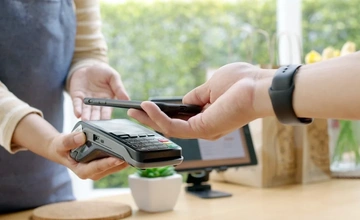Fraudsters are getting more and more sophisticated, making online scams harder to spot. They can create fake websites that look like the genuine article and trick people into parting with their cash.
In 2024, fraudsters are increasingly using AI to create realistic phishing attempts and synthetic identities. This has made scams more convincing than ever. So, if you’ve fallen victim to an online scam, you’re not alone, and there’s no need to feel embarrassed. We take a look at what you can do to report it and get your money back.
How was the payment taken?
The most important question is: how was the payment taken by the fraudster? The answer to this question determines who you need to contact to claim your money back. In most cases, you should try and get in touch with the seller first. But if you have no luck, there are other avenues to explore.
Bank transfer
Authorised Push Payment (APP) fraud has become one of the most common types of bank fraud in 2024. Here, scammers will trick victims into transferring money under false pretences. Banks should be informed quickly, as they may be able to stop the transaction.
As of 2023, more banks have adopted the voluntary code of practice for APP. This has increased the chances of getting a refund if the payment was made in error. However, banks still may not refund you if they deem your actions to be ‘grossly negligent.’ If you spot an unauthorised transaction on your statement, notify your bank immediately to investigate, as they may reimburse you.
Debit card
If you made a purchase online using your debit card, you should contact the seller first if the item:
- never arrived
- didn’t match the description
- was faulty
If they don’t cooperate, contact your bank. You might be able to request a chargeback, which is when your bank retrieves the funds from the seller’s bank.
In 2024, online retailers are increasingly targeted by scammers who exploit cost-of-living pressures. This has led to an increase in refund-related fraud. Be sure to act quickly, as chargeback claims must usually be made within 18 months.
Credit card
You can also request a chargeback for purchases on your credit card, but only for amounts under £100. For transactions between £100 and £30,000, Section 75 of the Consumer Credit Act still applies. Section 75 covers fraud, faulty items, or goods that don’t match the description. You can apply to the seller or your credit card company for a refund.
If you made a complaint to your bank or lender and haven’t received a response within eight weeks, or you’re dissatisfied with the outcome, you can escalate the matter to the Financial Ombudsman Service, who can review the case independently.
PayPal
The official PayPal website advises that the first point of contact should be the seller, and you can raise a dispute through the PayPal Resolution Centre. If unresolved, you can escalate the issue within 20 days of the initial complaint.
PayPal’s Buyer Protection Scheme still covers cases where items don’t arrive or don’t match the description. Make sure you're on the genuine PayPal site. Scammers in 2024 often create realistic copycat PayPal sites to steal login credentials. So, it’s essential to double-check URLs and log in only via the official website.
Wired a payment
If you wired a payment through services like PayPoint or Western Union, it’s unlikely you’ll be able to get your money back. Scammers still frequently use these wire services because of their limited refund options, but Western Union’s fraud section might offer advice on next steps.
Being a victim of fraud can be very upsetting. If you need emotional support, consider getting in touch with a charity such as:
They can offer free, non-judgmental help. Many victims, particularly older individuals, are now targeted through fake investment schemes or impersonation fraud, making emotional support essential.
Fiona is a personal finance writer with over 7 years’ experience writing for a broad range of industries before joining Ocean in 2021. She uses her wealth of experience to turn the overwhelming aspects of finance into articles that are easy to understand.










